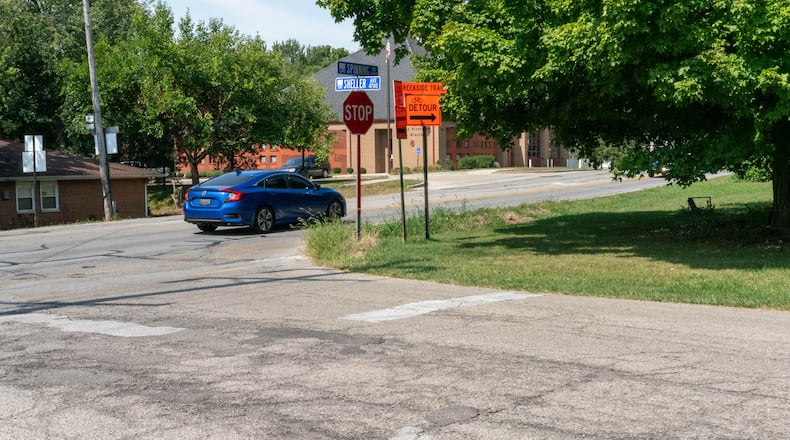Riverside officials laid out the plan in detail during a community discussion on Thursday evening. The video and more details about the street levy can be found on Riverside’s website.
Riverside City Manager Mark Carpenter said residents often ask, “Well, what about my street?”
“I just want to remind everyone that 70% of our streets, that’s over 200 (streets) are in a fair to poor condition,” he said. “So there’s a lot of streets that need to be first.”
The change in plans was made in part because the Montgomery County Water Services Department decided not to replace water lines in Riverside by plat like it previously told the city administrators it would. The city wants to partner with the water department so streets are not torn up and replaced twice and to take advantage of grant money the water department is eligible for.
Carpenter stressed during the meeting that the plan is contingent upon city voters passing a five-year levy and then renewing it in five years. The city is asking voters this year to consider a 5-mill, 5-year property tax levy for the repair and repaving of residential roads only. The Montgomery County Auditor’s office estimates that the levy would generate about $1.2 million a year, or about $6 million over the five-year life of the levy.
According to the auditor’s office, if the levy were to pass, the owner of a $100,000 house in Riverside would pay an additional $175 a year in property taxes for five years.
Riverside Public Service Director Kathy Bartlett said she recognizes “that a lot of people think their street is worse” than another street scheduled to be paved first. The normal resident "probably would not notice the difference” in pavement condition index between some similarly rated streets, she said.
“But this is the method,” she said. “It’s a proven method. It was developed by the Army Corps of Engineers."
In ten years, if the levy passes and all goes as planned, Bartlett said Riverside would “start looking like Huber Heights and Fairborn.”
About the Author



